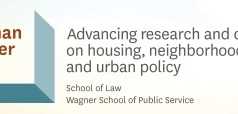Making Neighborhood Research an Integral Part of the Homebuying Process
In the age of easy access to information, people spend hours researching and reading reviews about toasters before purchasing one. For most people, buying a house is the most significant financial decision of their lives. So, you’d expect homebuyers to be meticulous with their research. Yet, that is not always the case, and one of the most overlooked aspects is researching the neighborhood.
According to a survey by Trulia, 7% of homebuyers regretted their purchase due to inadequate neighborhood research. Parents, in particular, tend to express more regrets about their neighborhood choice than non-parents (9% vs. 6%).
Neglecting thorough neighborhood research can lead to several significant consequences such as ending up in an unsafe area, a mismatched lifestyle, financial losses due to being in a declining area, noisy surroundings, lack of community, and difficulty in selling.
Why Do Many Buyers Downplay Neighborhood Research?
Overwhelming Focus on the Property: Homebuyers often prioritize the physical attributes of the house itself, such as size, layout, and condition. The excitement of finding the perfect home can overshadow the importance of thoroughly examining the surrounding neighborhood. The emotional attachment to a property can blind them to potential neighborhood issues.
Time Constraints: The homebuying process can be lengthy and stressful. With so many steps involved, from securing financing to closing the deal, buyers might not allocate enough time to conduct in-depth neighborhood research. The pressure to make a quick decision, especially in competitive markets, can lead to hasty evaluations of the neighborhood.
Lack of Accessible Information: While there are numerous resources available for property details, comprehensive and reliable information about neighborhoods can be harder to find. Buyers may rely on limited data points, such as school ratings, without getting a full picture of what it’s like to live in the area.
Preconceived Notions and Trusting Real Estate Agent Opinions: Buyers may have assumptions about certain neighborhoods based on hearsay or outdated information. Additionally, some buyers might assume that if a neighborhood is recommended by their real estate agent, it must be suitable, not realizing that agents are restricted in what they can disclose about the area due to regulations like the Fair Housing Act.
What Factors to Consider When Investigating a Neighborhood
When trying to figure out if an area is a good match for you and your family, these are some of the questions you might ask:
- Is this area family-friendly or better suited for a single lifestyle?
- Are the houses mostly occupied by owners or rented?
- Is the area homogenous or diverse?
- Do people here share our political and social beliefs?
- How do property and personal crime rates compare to national averages?
- Are there sex offenders living nearby?
- Are the roads and highways safe or prone to accidents?
- Are there public housing properties (commonly known as “the projects” or Section 8 housing) in the vicinity?
- Is the area prone to earthquakes or floods? How is the air quality?
- Is the area quiet? Is it walkable?
- How are home values expected to grow in the future?
- Are the local public schools high quality? What charter or private school options are available nearby?
- Does the area have a balanced mix of developed regions and natural spaces, such as green areas and bodies of water?
Where to Find This Information
If you’ve ever bought a house or read about the process, you’re familiar with the home inspection process. You hire a licensed inspector who carefully examines every corner of the house—plumbing, electrical, foundation, roof, AC—and provides a comprehensive report on the building’s structure and systems’ health. What if you could get a complete report similar to a home inspection, but for the neighborhood, including all relevant information about the area? There are actually online services that offer that.
One such service is Maptimum, which provides thorough and affordable reports for any area in the US. You select a specific area (for example, an address and a 1-mile radius around it), and receive a detailed report that uses data from formal government sources and trusted third parties, along with AI-generated personalized advice, to inform you about all the important factors and address your concerns. Here’s a sample Maptimum report.
Another similar service is NeighborhoodScout, although it’s more costly and geared towards real estate investors. Here’s a sample NeighborhoodScout report.
These services are particularly useful when people are buying in a new city or state where they have no knowledge of the local communities and are time-bound. They are also a great resource for real estate agents to refer their clients to give them peace of mind about the quality of their chosen neighborhood.
Conclusion
You can always fix your home, but not your neighborhood. Beyond a casual walk or anecdotes, a data-driven approach to evaluating neighborhoods through services like Maptimum and NeighborhoodScout ensures your new home is in a community where you can truly thrive. Let’s make neighborhood research an indispensable part of the homebuying process to avoid future regrets.















